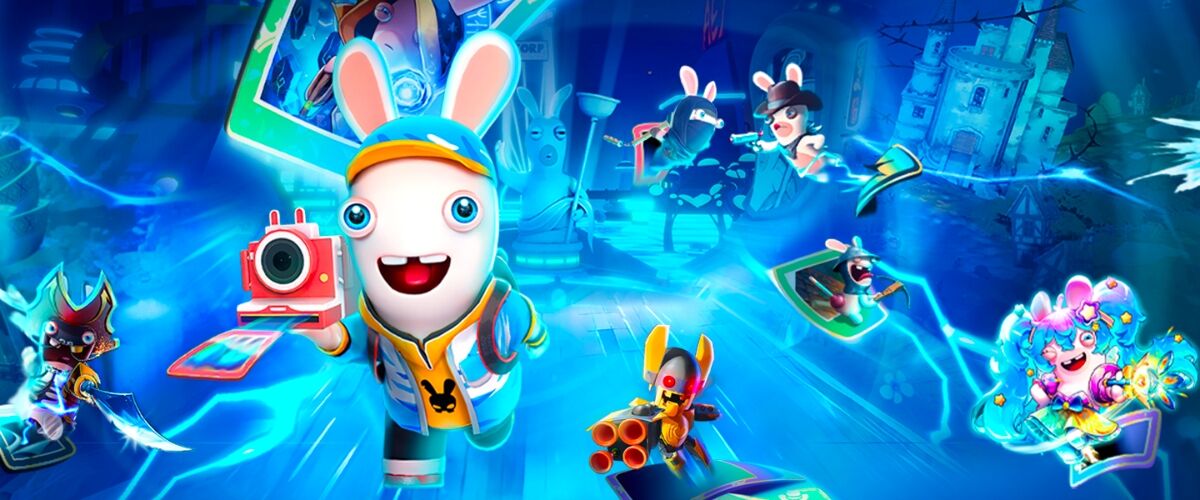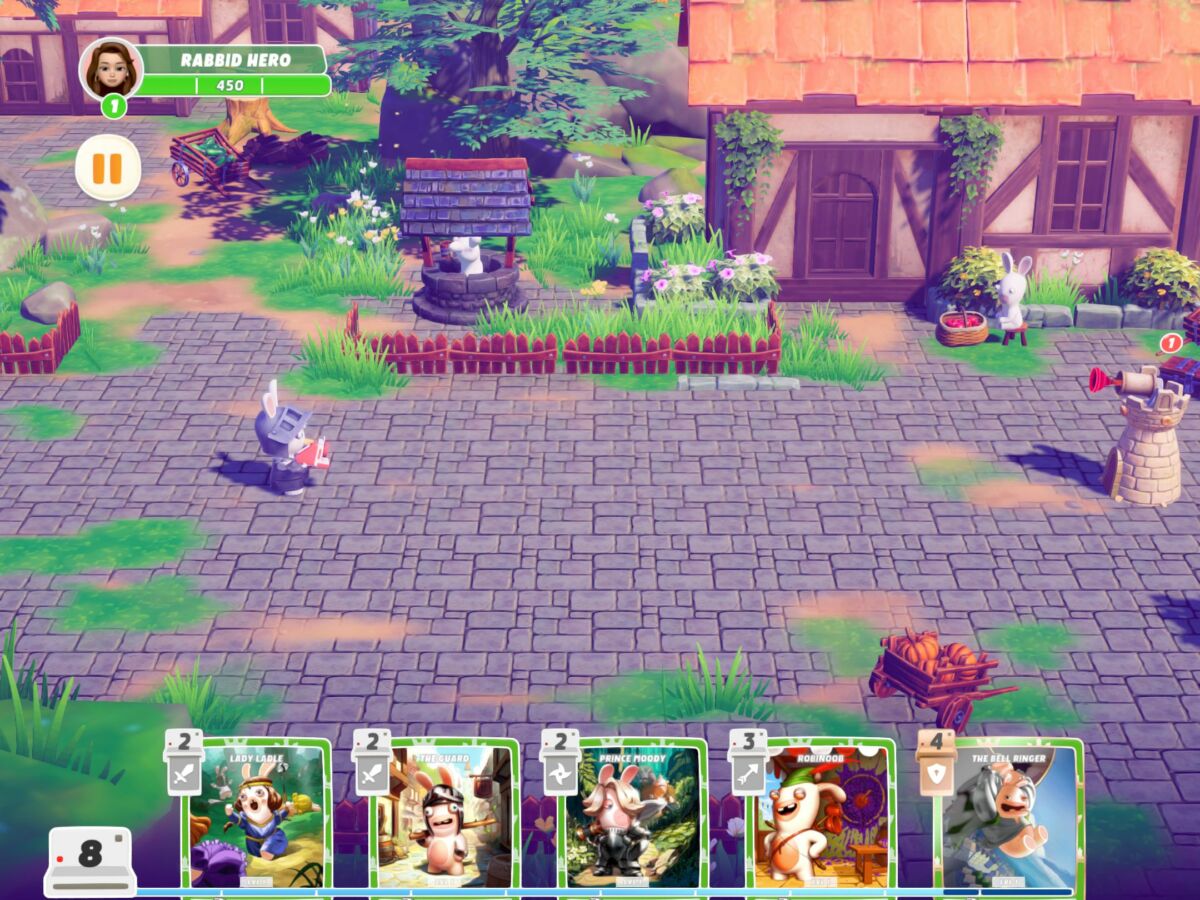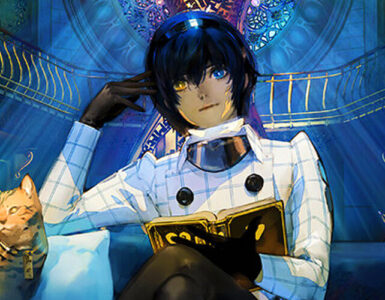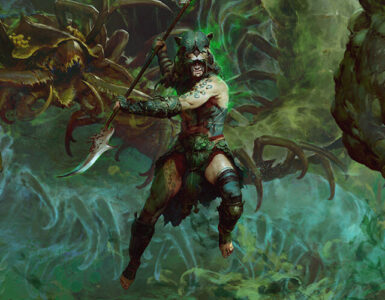Apple’s subscription gaming service, Apple Arcade, adds new titles across a variety of genres monthly, ensuring that players of all types can find something suitable on the service. This allows everyone to try something new, especially in a genre they had previously ignored, and it helps when the characters are instantly recognisable. While the rabbids aren’t as popular as the Italian plumber or speedy hedgehog, Ubisoft’s hyperactive and delusional bunnies have their own fandom and Rabbids: Legends of the Multiverse seems like a cool addition to the platform.
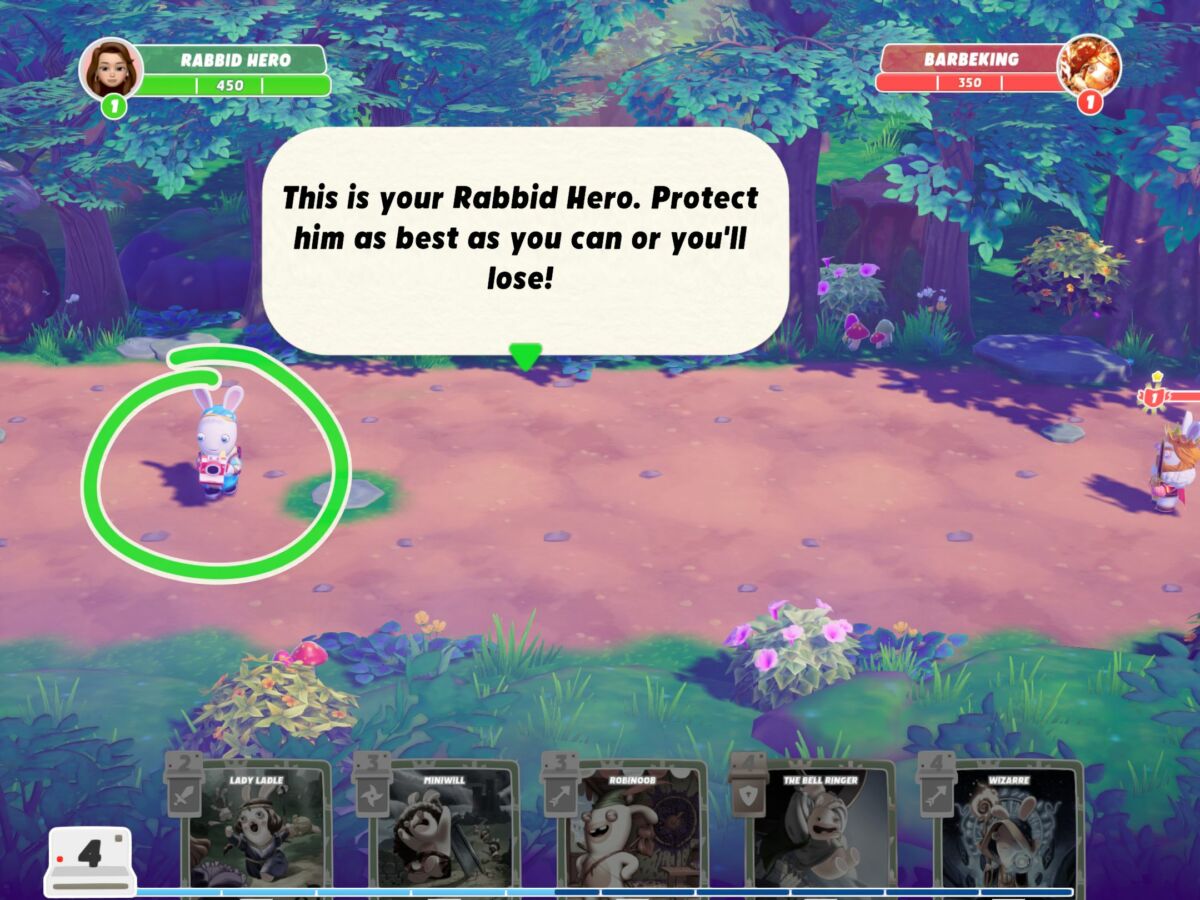
From action to puzzles, these crazy, hyperactive bunnies, who have seemingly overdosed on caffeine, first made their video game debut in 2006’s Rayman Raving Rabbids, where they promptly pushed Rayman into the background and stole the show with their nonsense.
This time, they enter the popular deck builder genre, mixed with some strategy, where players have to fend off waves of enemies by using cards to call on allies and support, This means Rabbids: Legends of the Multiverse is not a sequel to any Rabbids or Rayman game, and is a whole new level of mayhem that only these critters cangenerate. Time has passed and the Rabbids have gotten even crazier, inventing new ways to avoid boredom, until it all goes wacky multi-dimensional, and time, space, and Cardi Bwah (wait, what?)… well, nothing makes any sense anymore!
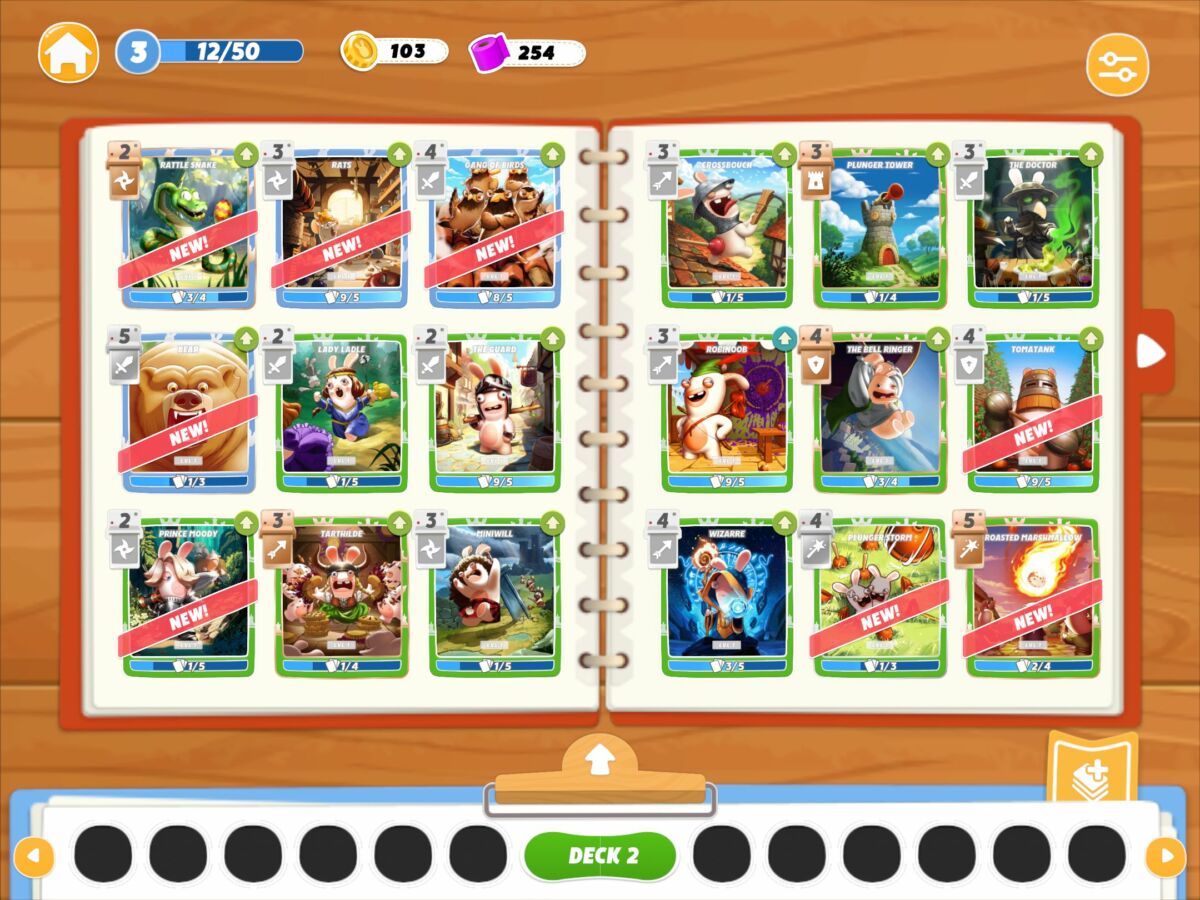
Which is exactly the premise of this game. Nothing makes sense. The game throws players into a nonsensical journey across the multiverse, basically an excuse for players to visit new worlds, realms and time periods, where the Rabbids have been unleashed in all their irrational glory. Players are tasked with building the ultimate deck of Rabbids, from Knights and Ninjas to Pirates and Cowboys, by “snapturing” (yes, that’s the actual term… which means that the player has to snap a picture to capture a Rabbid) legends from the five corners of the multiverse.
The hysterical rabbits embark on a journey to all corners of the multiverse, or rather, to all different worlds and you need a warped mind to understand the logic here. Players start in the medieval Barbe kingdom, where they travel by haunted washing machine (because why not?), then, armed with a camera, hop through the Chinese Dragonburg, the Western Valley, the Pirate Lagoon, and Toekomstopolis. These worlds are superficially different, but with one constant – players encounter pleasantly disturbed bunnies everywhere: knight bunnies, ninja bunnies, pirate bunnies, cowboy bunnies. It’s a chaotic whirlwind of Rabbid madness that quickly becomes overwhelming.

Collecting all the Rabbids becomes a tedious chore, as players either draw them from a luck-dependent gacha system or earn them through completing stages. Each Rabbid possesses unique abilities that deal damage and they are categorised into four classes: tanks, which are slow but durable; ranged, which have lower health but can attack from a distance; assassins, who are quick and deal significant damage but are fragile; and mages, who specialise in magical attacks.
Despite this variety, the strategic complexity of building decks and engaging in combat feels limited and repetitive. Players typically drag Rabbid cards onto the field and watch as the Rabbids execute their whimsical assaults. The number of Rabbid cards you can deploy on the field at any given time is limited by your available energy, with a maximum capacity of ten. Each card carries an energy cost, typically around three or four energy points, and this energy continuously replenishes over time.

The game attempts to add depth with the option to upgrade cards, transforming your basic Rabbids into more formidable contenders with enhanced powers. Theoretically, this feature should enrich the strategic gameplay by necessitating thoughtful card combinations for progressing through the adventure but, the execution falls flat. The battles themselves are a drudgery of uninspired gameplay, looping endlessly without offering any engaging incentive to persist. Upgrades and strategic combinations become mere formalities rather than exhilarating gameplay elements.
Adding to the game’s woes is its lack of pacing control. Each stage, intended to be a new challenge, trudges along with excruciating slowness, lacking any option to hasten the snail-paced action. This slow movement isn’t just a minor annoyance, it’s a glaring oversight that tests the player’s patience to its limits and leaves players yearning for a non-existent 2x speed button to alleviate the monotony. Even the game’s attempt at humour and charm through the once-beloved quirky antics of the Rabbids now grates on the nerves, with their repetitive cries of “Bwaaa” losing any semblance of entertainment value.
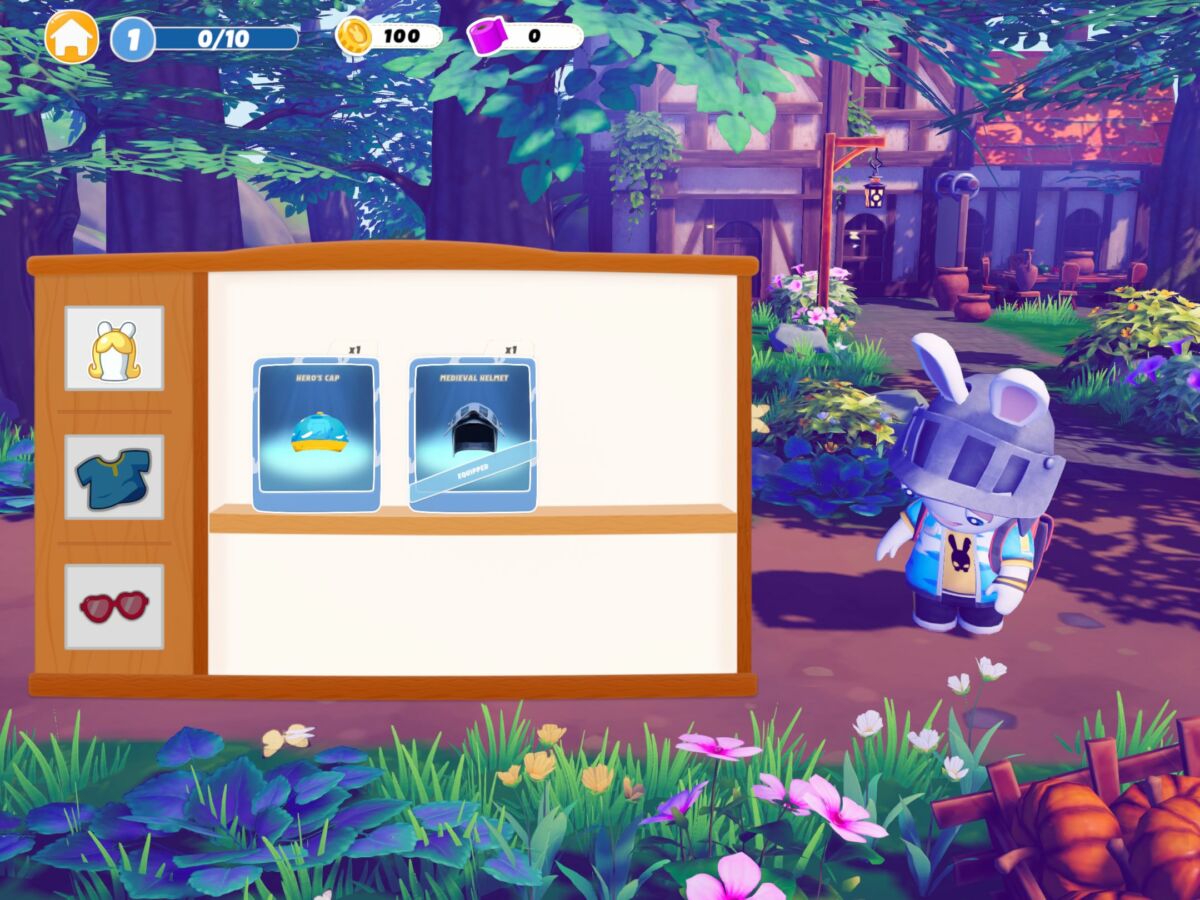
Even the aesthetic aspects of the game, like the ability to win outfits and customise the Rabbids’ appearances with various armours and streetwear costumes, do little to salvage the situation, though it does add a touch of personalisation. Unfortunately, these designs, which are mostly uninspired, make customisation feel more like a chore than a feature, reinforcing the sense that visual creativity has taken a backseat to mediocrity.
In addition, the player versus player (PvP) mode, which could have been an opportunity to inject some much-needed excitement into the game, merely recycles the same worn-out mechanics found in the exploration mode. Players are tasked with the monotonous goal of reducing their opponent’s health to zero, a process that quickly becomes as repetitive and uninspiring as the rest of the game. This lack of innovation in both game design and gameplay mechanics ultimately renders Rabbids: Legends of the Multiverse a disappointing addition to the franchise.
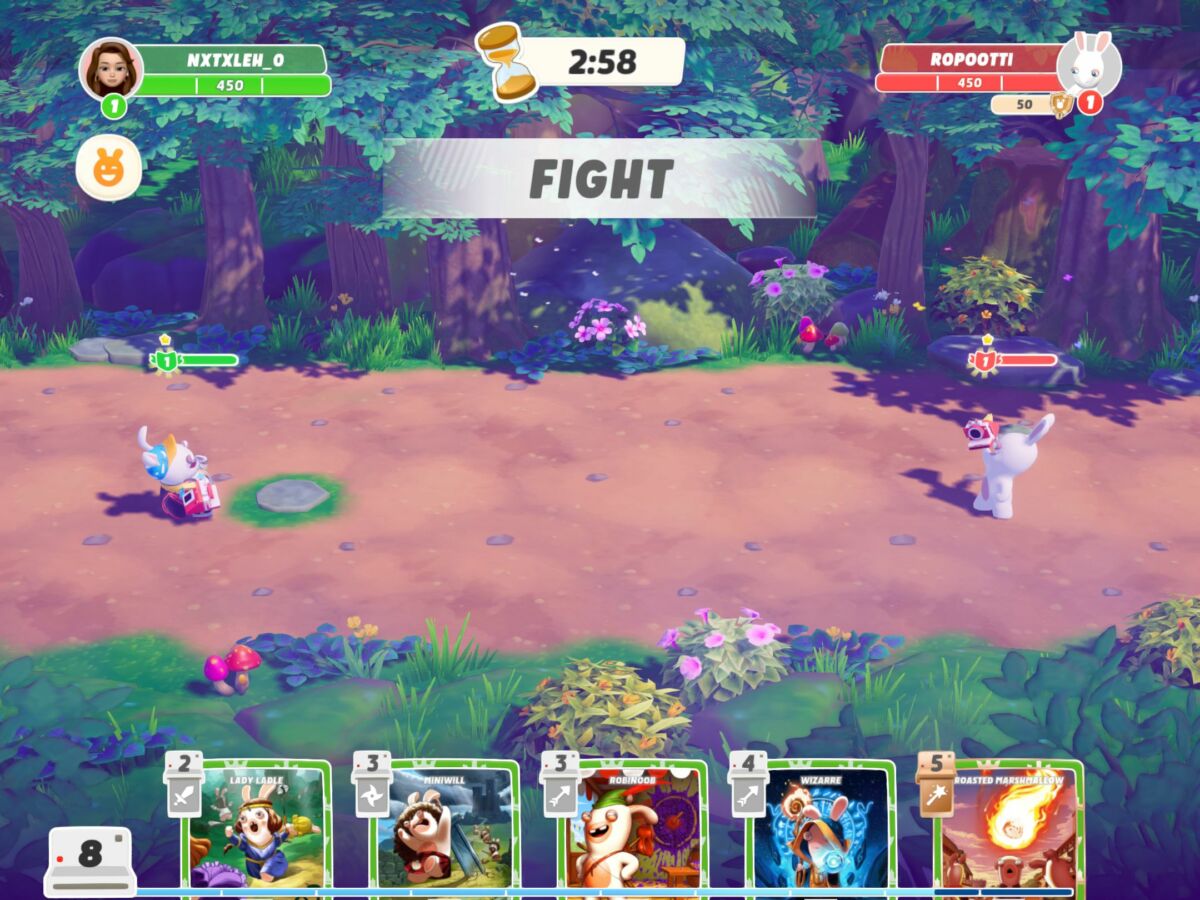
While the Rabbids’ signature brand of chaotic humour and slapstick antics may initially provide a few fleeting moments of amusement, especially to the kids who are more likely to enjoy this compared to adults, the novelty quickly wears off as players realise that there’s little substance beneath the surface.
The promise of strategic depth in building a “perfect rabbit army” ultimately falls flat, as the battles devolve into repetitive slogs with little room for meaningful decision-making. The unique skills of each bunny and the varying enemies fail to inject any real excitement or challenge into the gameplay, leaving players with a hollow sense of accomplishment after each victory.
The game’s attempts to juggle between mindless entertainment and strategic gameplay ultimately result in a disjointed experience that fails to satisfy either desire. Instead of offering a relaxing diversion for those looking to “shut their brains off,” Rabbids: Legends of the Multiverse presents a frustrating and unfulfilling adventure.
Rabbids: Legends of the Multiverse is a disappointing addition to the Apple Arcade library, as it offers little more than a repetitive grind and a nonsensical plot. For those seeking a genuinely entertaining and engaging experience on Apple Arcade, Rabbids: Legends of the Multiverse is best left unexplored.
GEEK REVIEW SCORE
Summary
Rabbids: Legends of the Multiverse is a disappointing addition to the Apple Arcade library, offering repetitive gameplay and a frustratingly slow pace.
Overall
4.4/10-
Gameplay - 4/10
4/10
-
Story - 5/10
5/10
-
Presentation - 4/10
4/10
-
Value - 4/10
4/10
-
Geek Satisfaction - 5/10
5/10

